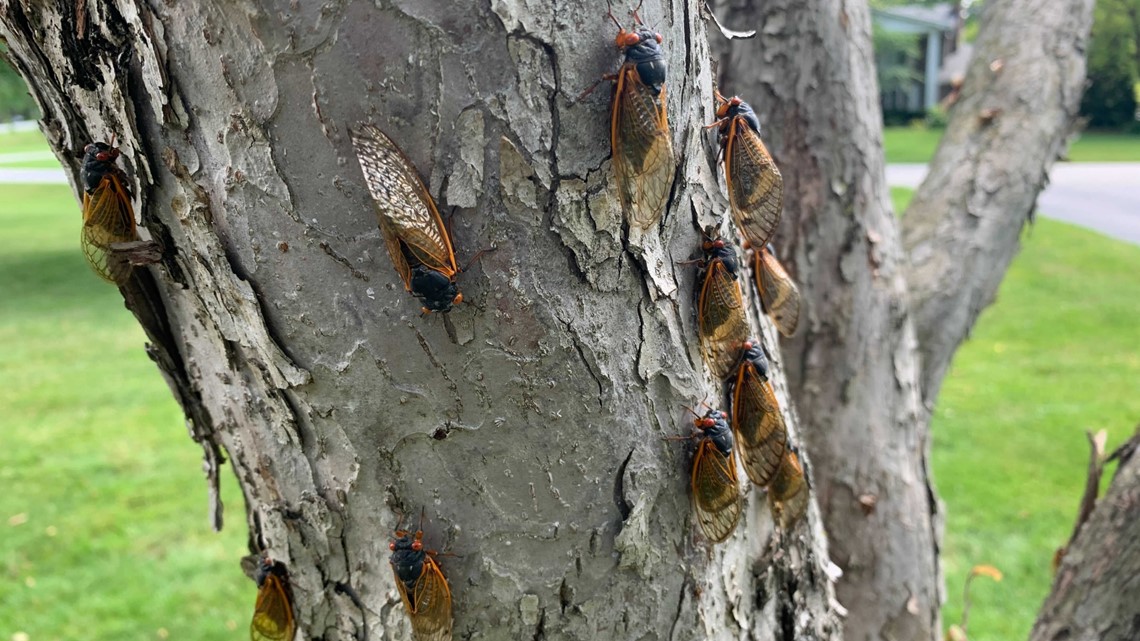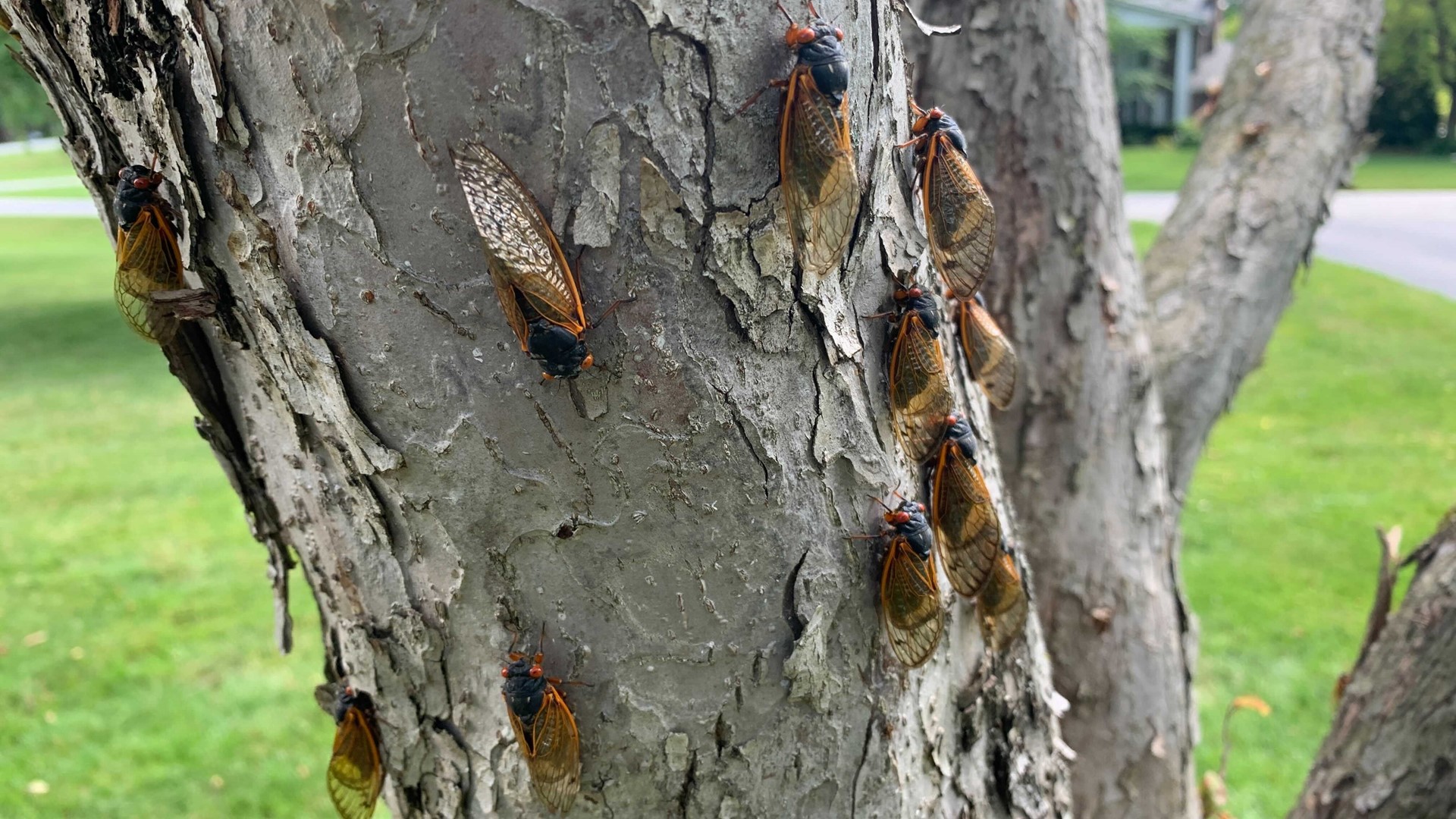GREENWOOD, Ind. — We knew they were coming. Now we're finally hearing them and seeing them all over central Indiana.
The Brood X cicadas have come out of the ground and invaded many areas.
Paula Boas just moved into her Greenwood neighborhood two months ago. Boas didn't know she had so many noisy neighbors living underground the last 17 years, now taking over her yard for a summer cicada orgy.
"The males are the ones who make the noises,” said Boas. “They're singing to find their mate. The females are silent. As soon as you see them attached to a branch, that's when they are cutting like a slit in the branch to lay their eggs."
Boas waited 25 years to own a house with a pool in the backyard. Now she holds a badminton racquet to swat the cicadas that swoop in while she lounges by the pool.
She's is a middle school math teacher who has become an internet entomologist to learn all she can about the Brood X cicadas.
"So, if you're standing under a tree and you feel like there's raindrops falling, it's actually cicada pee,” said Boas, holding her racquet while standing close to a tree in her front yard covered with hundreds of cicadas. "I'm super creeped out. They blend in with the bark."


The Brood X cicadas love mature trees and undisturbed ground, like at Southeastway Park in Indianapolis. They have emerged in waves from holes in the ground the past couple weeks. Brood X only comes out once every 17 years. But when they arrive, they come in huge numbers, up to 1.5 million cicadas per acre. They make constant noise, from buzzing to clicking and even sounding like a car alarm at times.
"I love them,” said Caitlin Stahl, Southeastway Park naturalist. “I think they're so cool. I'm so fascinated by them."
Stahl picks the cicadas off trees like berries and holds them in her hand until they fly away.
"They are harmless,” said Stahl. “They're just big and clumsy like big, old, dopey puppy dogs. I think it's so magical. I don't remember when they came out 17 years ago, so I've been looking forward to this for quite a while. It's kind of surreal."
Boas just can't wait for them leave.
"Their life cycle is four to six weeks,” said Boas. “So, we figure about the end of June, they'll all be gone - fingers crossed."
Until then, the cicadas sing the song of the summer.

